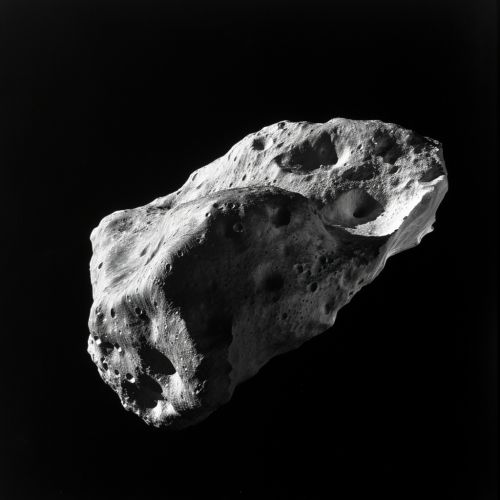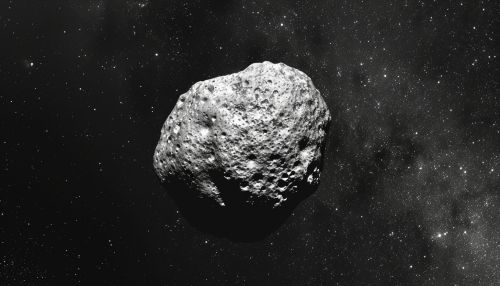624 Hektor
Discovery and Naming
624 Hektor, a D-type Trojan of Jupiter, was discovered on February 10, 1907, by astronomer August Kopff. The asteroid was named after the Trojan hero Hector from Homer's epic, the Iliad.


Physical Characteristics
624 Hektor is the largest known Jupiter Trojan and is believed to be a binary system. It has an elongated shape, with a length of about 370 kilometers and a width of about 200 kilometers. This makes it one of the most elongated bodies of its size in the Solar System. Its surface is dark and reddish, typical of D-type asteroids, and it has a very low albedo, or reflectivity, of only about 0.025.
Orbital Characteristics
624 Hektor orbits in Jupiter's leading Lagrangian L4 point, approximately 60 degrees ahead of the planet in its orbit. The asteroid's orbit is highly inclined and moderately eccentric, with an inclination of 18.2 degrees and an eccentricity of 0.23. Its average distance from the Sun is about 5.2 astronomical units, and it takes about 11.9 years to complete one orbit.
Satellite
In 2006, a smaller moon, provisionally designated S/2006 (624) 1, was discovered orbiting 624 Hektor. The moon is estimated to be about 12 kilometers in diameter and orbits Hektor at a distance of about 623 kilometers.
Observations and Studies
624 Hektor has been the subject of numerous observational studies. In 2003, the Keck Observatory in Hawaii conducted a detailed study of the asteroid using adaptive optics. The study confirmed Hektor's elongated shape and suggested the presence of a large crater or valley. In 2014, the European Space Agency's Rosetta mission observed Hektor from a distance of about 600 million kilometers, providing further details about its shape and surface properties.
Future Exploration
While no missions have been specifically targeted at 624 Hektor, the asteroid's unique characteristics make it an interesting target for future exploration. In particular, studying Hektor and other Trojans could provide valuable insights into the early history of the Solar System.
